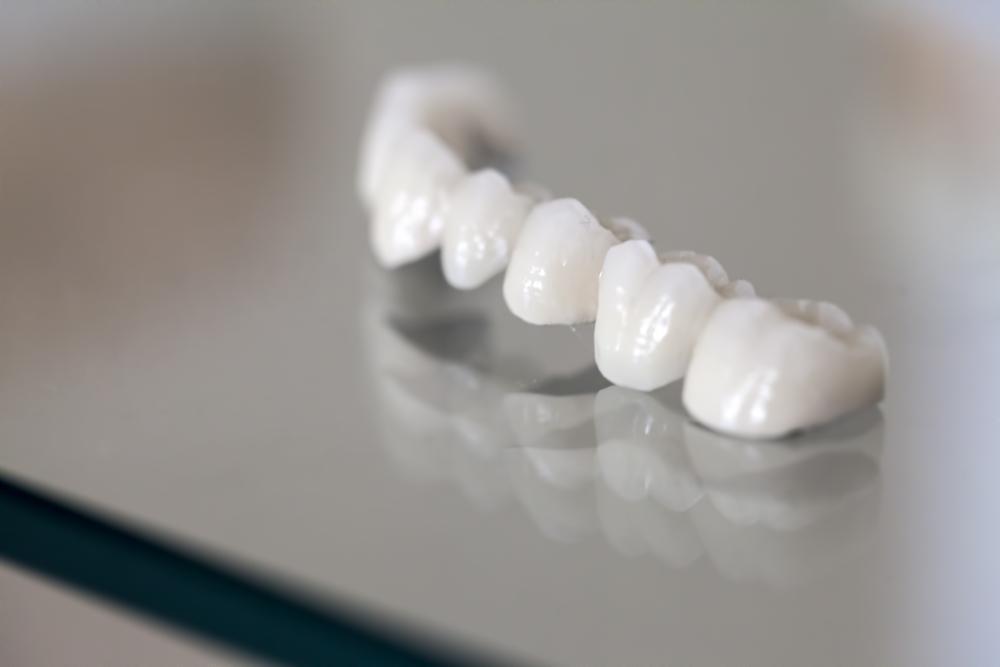
5 Things To Know Before Considering a Dental Bridge

Missing teeth can have a significant impact on the appearance and overall health of your smile. If you’re in search of a solution for missing teeth, it’s vital to understand the treatment options that are available to you. Gaining an understanding of your treatment options will help you find the best solution for you. If you require replacement of one or more missing teeth, here are five things you should know before considering a dental bridge as a solution.
What Is a Dental Bridge?
A dental bridge is a commonly used dental device that consists of one or more artificial teeth made from resin or porcelain that replaces missing natural teeth. Often referred to as a filler, false teeth, or a partial denture, a bridge is connected to crowns that anchor the device to natural teeth. The crown may cover two or more teeth to properly secure the bridge and hold the artificial teeth in place. If natural teeth are unavailable, your dentist may recommend implanting teeth on either side to hold the bridge in place.
What To Expect During Installation
After determining with your dentist that a dental bridge is the best solution to replace your missing teeth, your dentist will begin to prepare the anchor or abutment teeth. This preliminary treatment is usually performed under local anesthesia, and the process is not typically considered to be painful.
During your second appointment, the bridge will be set into place. Immediately following a dental bridge installation, your new bridge may feel bulky; however, this should subside as you become accustomed to the new prosthetic. A third and final follow-up exam will allow your dentist to check the bridge and make any necessary adjustments for any discomfort or pain you’re experiencing.
Cleaning and Care
Taking proper care of a dental bridge isn’t that different from caring for your natural teeth. The American Dental Association recommends routine brushing with a soft-bristled toothbrush for two minutes each day. Additionally, flossing regularly will help to prevent gum disease and tooth decay. When flossing with a bridge, it’s required to floss around your natural teeth in addition to moving the floss between the base of the bridge and the gum tissue. Flossing once per day is the most effective way to remove plaque and debris from the underside of a bridge. Traditional floss may be sufficient; however, many patients with dental appliances prefer the convenience of Waterpiks.
Associated Costs
Dental bridges are one of the more affordable options for replacing missing teeth, and they are also more likely to be covered by your dental insurance. On average, a dental bridge may cost between $500 to $1,200 per tooth, whereas a dental implant may cost $1,000 to $3,000 per tooth. Your dentist can help guide you to the best solution for your budget.
Dental Bridges Aren’t a Permanent Solution
When properly cared for, a quality dental bridge can last for decades. Unnecessary damage can be prevented by avoiding chewing gum and consuming hard foods like nuts, ice, and hard candies. Excellent oral hygiene and regular visits to the dentist can help to keep your investment comfortable, clean, and long-lasting. While lasting, a dental bridge isn’t considered to be a permanent solution for missing teeth.
Alternative Options For Replacing Missing Teeth
For a more permanent solution to replacing missing teeth with fewer limitations, dental implants may be an option you want to consider. One of the most significant advantages of dental implants is they place less of a burden on the surrounding teeth while promoting bone structure and gum health. Generally, a high-quality dental implant can last for a lifetime.
Elite Dental & Denture PC is here to help if you are considering getting a dental bridge or need to replace an old bridge. Call us to schedule an appointment with our friendly and experienced dental staff.
You Might Also Enjoy...


Can Improving Your Smile Boost Your Career?

The Do's and Don'ts of Tooth Extraction

The Oral Health – Mental Health Connection

The Importance of Tongue Health


